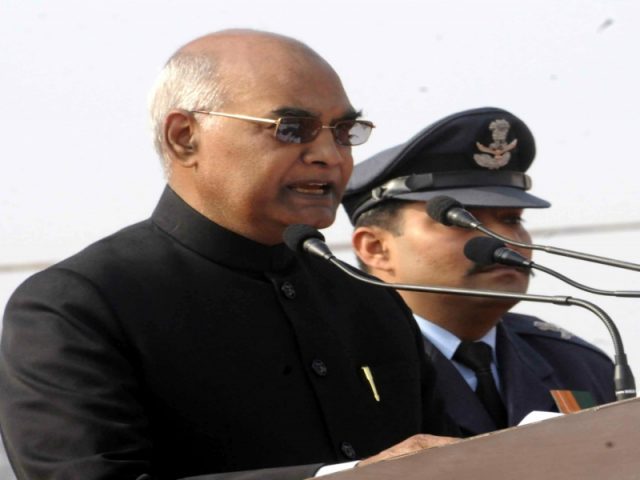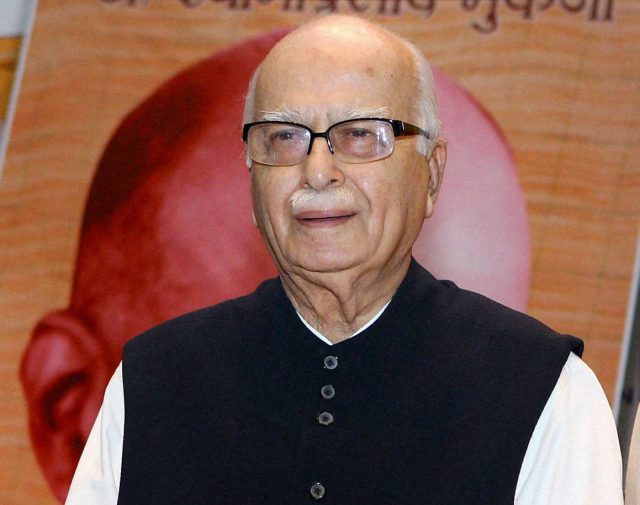Ram Nath Kovind, a long time Dalit, BJP leader.
Kovind was nominated by the NDA on June 18 and if recent reports are to be believed, both the Shiv Sena and Mulayam Singh Yadav will support the choice for his selection as a candidate for the role of India’s President.

But the question that needs to be asked and answered in all urgency is: “Why Ram Nath Kovind?”.
Why not Sushma Swaraj or Arun Jaitley, who were the top contenders in various news reports?
Unfortunately, that is a question that I cannot give a concrete answer to.
But what I hope is to draw a conclusion in the whereabouts of the actual reason, by looking at the life and times of the man who is, in all probability, going to be roaming the halls of Rashtrapati Bhawan pretty soon.
Ram Nath Kovind was born on October 1, 1945, in Kanpur Dehat in Uttar Pradesh.
One pertinent fact to keep in mind is that he was born a Dalit.
A commerce and law student, he obtained both these degrees from Kanpur University and subsequently moved to Delhi to prepare for the Civil Services examination.
It’s clear to see that he was inclined towards public service from the beginning. But unfortunately, fate didn’t follow through.
He cleared the examination on the 3rd attempt but was selected for an allied service instead of IAS, his primary goal.
Needless to say that being a Dalit, there was no smooth sailing for Ram Nath Kovind for obvious reasons.
But he persevered, becoming an advocate for the central government in the High Court for a duration of 2 years, from 1977 to 1979.
After this, he became the Standing Counsel in the Supreme Court in 1980 and the Advocate on record in 1978.
He practised law till 1993 and then switched his career to focus on politics.
He was chosen as the Rajya Sabha MP from UP in 1994 and served till 2006, two full terms.
Also Check Out: When Even Winners Face Defeat: The Narendra Modi Story
During his tenure, he was a member of numerous Parliamentary Committees. He always looking to further the cause of the deprived castes, serving as the head of BJP’S SC and ST wing.
His tenure included:
Parliamentary Committees, which further included: Parliamentary Committee on Welfare of Scheduled Castes/Tribes, Parliamentary Committee on Home Affairs, Parliamentary Committee on Petroleum and Natural Gas, Parliamentary Committee on Social Justice and Empowerment, Parliamentary Committee on Law and Justice. He also chaired the Rajya Sabha House Committee.
I think it’s pretty apparent that Ram Nath Kovind was not a lightweight player. In addition to the aforementioned posts, he also served as BJP’S spokesperson, president of the BJP Dalit Morcha from 1998 to 2002, President of the All India Koli Samaj as well as the SC/ST representative at IIM-Calcutta.
Finally, he was chosen as the Governor of Bihar by the NDA in August of 2015.
So then, why did the BJP choose Kovind over Swaraj, Jaitley and even L. K. Advani (Advani seems to be having a tough luck these days)?

Well, in my hypothesis, it is because of a lot of factors that have come into play after the 2014 elections.
The Bharatiya Janata Party has not had the best of confidence among the minority ‘Janata’. Both religious and caste based.
Unfortunately, the BJP leaders in the limelight have been quite vocal with their anti-minority rhetoric (Eg. : Yogi Adityanath).
Additionally, the general opinion of the public is that BJP is an upper caste-based party because of its roots and its ties in the RSS.
Now, RSS is a predominantly Hindu organisation which in turn in a Brahmin-centric religion.
And there lies the catch.
Brahmins were and are in upper caste and therefore RSS and the BJP are perceived to be upper caste preferring.
I can’t confirm the absolute credibility of this hypothesis but the 2014 polls suggested a consolidation of the upper caste votes in favor of the BJP.
56 percent of the vote was in favor of the NDA vs a mere 30 percent in 2009.
The evidence and hypothesis are before you. The conclusion is for you to derive.
But if this hypothesis carries through, then this move is either to change the face of BJP in the minds of Indians.
To send the message that BJP is not an upper caste focused party and is a party for all Indians regardless of caste and religion, nominating a minority leader to such a high post will surely send that message. Surely.
Or maybe it’s just a move to capture another vote bank to further the ultimate political goal: Votes! Votes! Votes!
You’d Also Like To Read:
http://edtimes.in/2017/06/darjeeling-is-killing-itself-with-unjustified-demands/




























